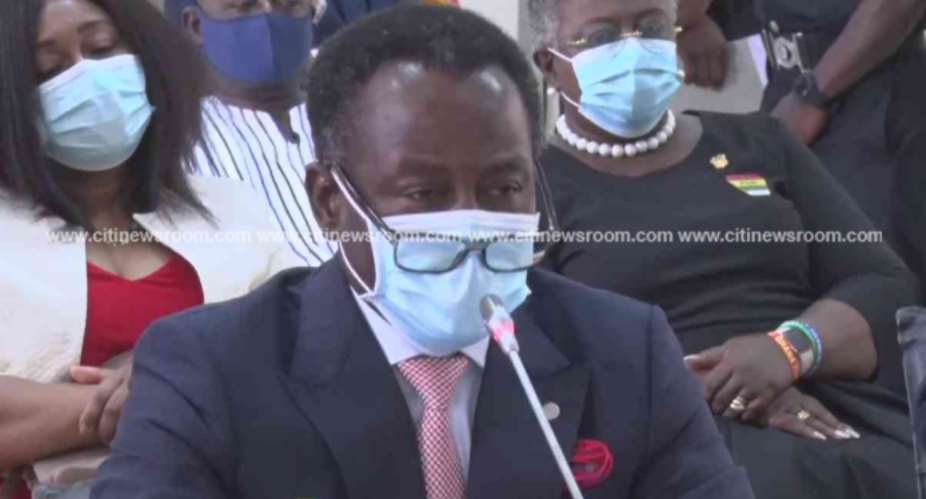Supreme Court Justice nominee, Yonny Kulendi is advocating for the abolishment of death penalty from Ghana’s laws.
He believes that to the extent that humans are fallible and prone to wrong judgments, it will be best to do away with the death penalty.
Answering questions during his vetting before Parliament’s Appointments Committee on Tuesday, May 12, 2020, Yonny Kulendi said: “patterns of my value system and faith do not subscribe to death penalty unless it behoves on me as a judge so to do because the law provides for it.”
The private legal practitioner said in instances where a convict is executed and it is found later that the judgment was erroneous, the victim cannot be brought back to life but if other forms of punishment are imposed, the victim can at least be compensated should it be found that the judgment was wrong.
“Judges, courts and processes and other endeavours are things done by men. Men are fallible and the processes we drive are fallible. I believe that life is sacred and men should not make it their place to take life…[Court processes are] prone to error. If you impose a death penalty and then you understand that the processes erred, [that life lost] is irretrievable,” he said.
Yonny Kulendi added that a legislative change will be needed to abolish the death penalty from the country’s laws.
“I don’t subscribe to it even though currently it is the state of the law and I think that for the purposes of reform, and also so we can be known to the committee of civilized nations where across the world it has been agreed that this is the most extreme, I think it is a progressive recommendation for legislative change,” he said.
The last time Ghana carried out an execution was in 1993.
The country’s laws retain capital punishment for some crimes including treason and murder.
In 2018, 12 people were sentenced to death and have since been kept on death row.
While Ghana has ratified the International Covenant on Civil and Political Rights (ICCPR) in 2000, it is yet to ratify its Second Optional Protocol aiming at the abolition of the death penalty (ICCPR-OP2).
---citinewsroom





 Tuesday’s downpour destroys ceiling of Circuit Court '8' in Accra
Tuesday’s downpour destroys ceiling of Circuit Court '8' in Accra
 SOEs shouldn't compromise on ethical standards, accountability – Akufo-Addo
SOEs shouldn't compromise on ethical standards, accountability – Akufo-Addo
 Father of 2-year-old boy attacked by dog appeals for financial support
Father of 2-year-old boy attacked by dog appeals for financial support
 Jubilee House National Security Operative allegedly swindles businessman over sa...
Jubilee House National Security Operative allegedly swindles businessman over sa...
 Nobody can order dumsor timetable except Energy Minister – Osafo-Maafo
Nobody can order dumsor timetable except Energy Minister – Osafo-Maafo
 Mahama wishes National Chief Imam as he clock 105 years today
Mahama wishes National Chief Imam as he clock 105 years today
 J.B.Danquah Adu’s murder trial: Case adjourned to April 29
J.B.Danquah Adu’s murder trial: Case adjourned to April 29
 High Court issues arrest warrant for former MASLOC Boss
High Court issues arrest warrant for former MASLOC Boss
 Align academic curriculum with industry needs — Stanbic Bank Ghana CEO advocates
Align academic curriculum with industry needs — Stanbic Bank Ghana CEO advocates
 Election 2024: We'll declare the results and let Ghanaians know we've won - Manh...
Election 2024: We'll declare the results and let Ghanaians know we've won - Manh...
